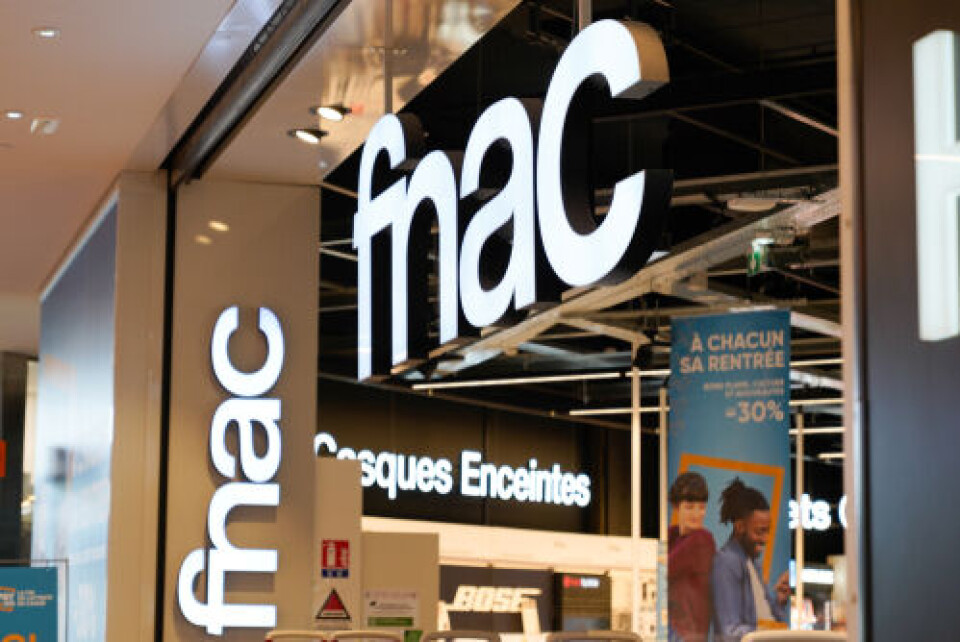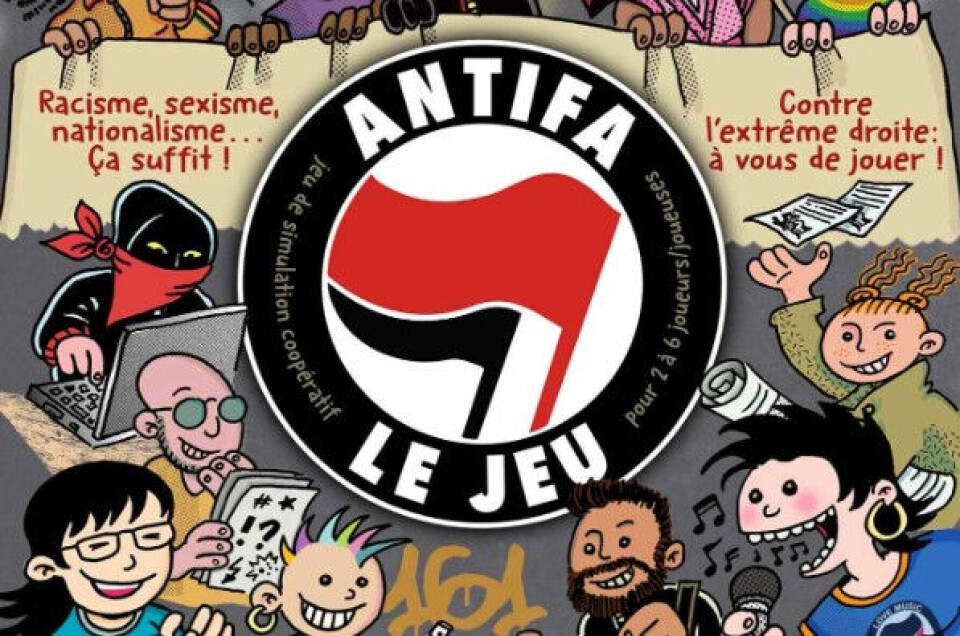-
Which medical appointments will see higher fees in France in 2026?
We look at specialists affected and how reimbursement for patients will work for new tariffs
-
New farmer blockade set up in south-west France, others continue
New protest action is at the Foix tunnel and impacts travel into the Pyrénées and January action announced at Cherbourg port
-
France speed cameras 2026: phones and seatbelts not detected - yet
Recent reports in French media claim systems can identify these offences
‘Anti-fascist’ board game reinstated in French shops after Twitter row
The game had been removed from the Fnac chain's shelves after protests from the far right

The French retail chain Fnac has reinstated an 'antifascist' board game to its shelves after withdrawing it from sale earlier in the week following claims from far-right politicians that it glorified antisocial behaviour.

The game - called Antifa - was withdrawn on Monday after enraged members of the far right complained on Twitter that the game glorified attacks on democracy.
It attacks “all that we hold dearest in our country…absolutely outrageous,” tweeted Grégoire de Fournas, the Rassemblement National MP for Gironde, on Sunday night.
Il n’y a que la gauche qui fait semblant de ne pas comprendre que ce tweet était ironique car elle est gênée par la réalité de ces milices antifas qui bloquent des facs, tabassent des militants de droite, attaquent des meeting RN et lancent des cocktails Molotov sur les CRS ! https://t.co/oXEB425ext
— Grégoire de Fournas (@gdefournas) November 28, 2022
Antifa stands for Antifascist. The idea of the game is that players are activists in charge of thwarting ‘right-wing extremist abuses’ by opposing them ‘with equal or greater force’.
These scenarios, presented in the form of playing cards, are entitled ‘Fascists start a fight in a bar,’ or ‘A gay couple attacked in the middle of town.’ Another is ‘A collective in support of migrants needs help.’
In order to thwart troublemakers the players – or Antifas – have 17 options such as ‘Debate meeting’, ‘Demonstration’, or ‘Offensive action’.
"It is a game of awareness of activism in all its dimensions. Sometimes they can be purely symbolic, sometimes they are more concrete," explains its author, who calls himself Hervé de la Horde.
"The most violent solution suggested in the game is the ‘cacatof’, a bottle full of excrement. We don't have a problem with offensive action, but at no point does the game glorify personal injury. There can be damage to property, but never to people.
“It is not anti-fascism that we defend," he insists, accusing the game's detractors of attacking it without knowing anything about it, and of trying to demonise the “fantasy” nature of the game.
Mr de Fournas, whose tweets prompted Fnac’s hurried withdrawal, recently brought himself to notice in the Assemblée nationale by exclaiming “Qu’il(s) retourne(nt) en Afrique !” while fellow La France Insoumise MP Carlos Martens Bilongo – who is black – was asking a question about illegal immigration.
It was unclear whether he was addressing his comment to Mr Bilongo or to the immigrants or their boats being transported across the Mediterranean, although Mr de Fournas insisted that he was referring to the latter.
He was barred from the chamber for 15 days.
Read more: The French grammar conundrum behind MP’s ‘go back to Africa’ scandal
Read more: French MP faces suspension over ‘racist’ comment in Parliament
The game was put back on sale on Tuesday this week after 24 hours of being banned.
Police union backing
The union which represents the police appears to have joined in the criticism of the game.
The union of commissioners of the national police (SCPN) joined forces by accusing Fnac of "highlighting the antifas, who break, set fire to and assault during demonstrations.”
Several RN elected officials had also questioned the distributor about this game created by the site ‘La Horde’ and published by Libertalia.
"Not knowing the exact content of this game and pending a thorough verification, our teams decided as a precaution to suspend the sale," said Fnac.
"Since yesterday, we have taken the time to thoroughly analyse the content of the game [...] and we have found that there was nothing to justify a refusal to sell it," said the distributor on Tuesday.
On its website, the publisher presents ‘Antifa the game’ as "a simulation and management game in which you run a local antifascist group" by setting up "actions that will require time, resources, and a little organisation.
The affair has given this little-known game an unprecedented spotlight, so much so that Libertalia indicated on Monday afternoon that the new edition of the game on sale on its site was sold out.
The publisher, who had denounced "false allegations from the far right", announced this week that it was starting a new production run and would be able to deliver new copies in January.
Bruised by Fnac’s decision
"We are not leftists with a knife between our teeth. Our game is a republican game, which has nothing to do with legality," said Nicolas Norrito, co-founder of Libertalia, according to whom everything has been done to make it legally unassailable.
He said in an article in Le Monde he was "bruised" by the Fnac's decision, which he believes speaks volumes about the state of political debate and deplores the fact that a large commercial group has so easily bowed to the demands of the RN and a police union.
"We are sorry that Fnac is where it is today, when it was co-founded by two anti-fascists, one of whom – Max Théret – went to fight Franco's troops in Spain in 1936."
He also demands "a small explanation" to the group on the presence in its real or virtual shelves of books by Alain Soral, a leading conspiracy theorist, or the revisionist historian Robert Faurisson.
Fnac has not provided any comment for the moment, but on its website, instead of the game, the following message is now displayed: "The page you are looking for has disappeared. Don't panic, our agents are on the case... "
Related articles
France’s favourite brands: Decathlon, Peugeot and E. Leclerc top poll
‘Why I’d have moved if my area of France voted in a far-right MP’
























